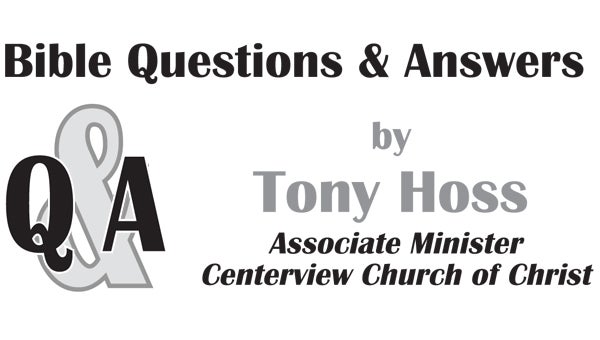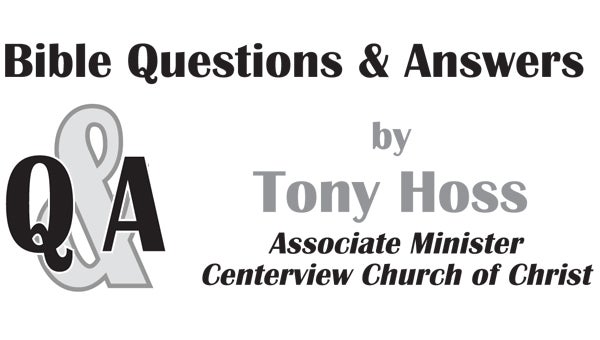The sum of God’s Word
Published 2:19 pm Thursday, February 16, 2023
|
Getting your Trinity Audio player ready...
|
Do you recall being in school? I sure do, and one class in particular comes to mind (math). In our math class we were taught the fundamentals and those same fundamentals are still in play today. One fundamental of math that was taught was that the answer in addition was the sum. The term sum in math refers to the result obtained through the addition of numbers, objects or things. It is the total of all things added together. This is important in our everyday lives; when we purchase items at a store we expect to pay the price or the sum total of all that we purchase. On the other hand, we would refuse to pay more than the sum of all that we purchase.
The Psalmist stated in Psalm 119:160 ASV, “The sum of thy word is truth; And every one of thy righteous ordinances endureth for ever.” It is therefore the totality of God’s Word that is important. There is no doubt that everything God has said is important and everything he has said is true. However, the truth about any matter can only be obtained by considering all that He had to say. This is an important concept as we study the Word of God. The principle of adding together all God’s revelation is essential in Bible study. It is when people fail to consider the totality of God’s Word that they make mistakes and possibly reach a conclusion that is in error.
One example of this massive failure can be found in Matthew 7:1. There Jesus said, “Judge not, that ye be not judged.” But this is not all that Jesus said on the matter of judging. Yet there are people who believe that this verse alone prevents any Christian from passing judgements on others. But Jesus in John 7:24 said, “Judge not according to the appearance, but judge righteous judgment.” Paul in 1 Corinthians 5:12 requires churches to judge their members with reference to fellowship. There are many situations in which we must assess one’s character, position, or conduct throughout our daily lives. In fact, we make judgments every day and all day long. We judge when we will rise from bed, what we will eat, we judge whether we will take a job, we judge which mate we will marry. And the list goes on and on.
If we read Jesus’ teaching about divorce only in Mark 10:2-12 or Luke 16:18, we would conclude that divorce is not allowable for any reason. If that was true, then any remarriage following a divorce would constitute adultery. But when we add in the words of Jesus in Matthew 19:9, we draw a different conclusion. The totality of God’s Word then allows divorce and remarriage for the innocent party and this is the one exception gained from the sum of God’s Word.
What about salvation? Many teach that all one has to do to be saved is have faith. But is that the sum of God’s Word? Believe is what the Philippian jailor was told in (Acts 16:31). Then later we see that he was baptized. Did he need to be baptized? Consider the Jews on the day of Pentecost when they asked Peter the same question. Peter said, “… Repent, and be baptized every one of you in the name of Jesus Christ for the remission of sins, and ye shall receive the gift of the Holy Ghost” (Acts 2:38 KJV). When we consider both passages, it is evident that the Jailer in Acts 16 had been told to do the same thing. Then the sum of God’s Word does indeed command baptism for the remittance of sin. This is true because in the act of baptism we put on Christ, we come into contact with the saving power of the blood of Jesus, our sins are washed away, and we are added to the kingdom of God.
The sum of God’s Word is truth. When we face questions about our salvation, our worship to God, our treatment of others or anything in life we would do well to search the scriptures for the sum of God’s Word rather than for only those passages which seem to support our preconceived ideology.
(Tony Hoss is minister of the Centerview Church of Christ, Elizabethton)




